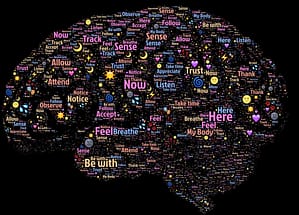Brain plasticity teaches us that the brain is constantly evolving. 70% of our brain cells change every day. Meditation changes the brain in many ways.


Brain plasticity teaches us that the brain is constantly evolving. 70% of our brain cells change every day. Meditation changes the brain in many ways.

Knowledge of brain plasticity has profound implications in human learning and behavior, and mental health. Have you seen those sci-fi movies where robots tweak, re-engineer and maintain themselves constantly? Our brains do that every day and we take all of that for granted.

Do you want to simply allow your brain to be “rewired” based on your environment and what others do?
Here are 5 simple strategies to consciously and intentionally make use of this unique brain plasticity that we all are blessed with.

What is involved in having an amazing memory? Our brain follows a process of storing and consolidating memories. Understand this process to develop your memory capacity.

Have you ever moved house or transferred your possessions to storage? What does it involve?
This post looks at what encoding a memory is and explores strategies for effective encoding.

I have a tough time remembering names even though I can easily remember faces, events, ideas and concepts. Does that mean I have poor memory? The answer to that is not so straightforward. In this post, I shall explore sensory memory and why that is so important.

Have you see Memento where Guy Pearce has difficulties creating new long-term memories? What that means is that he only has his short-term memory working for him. Think of short-term memory as a temporary holding place for your memories.

Our brain is not so different from a computer after all. Here’s a closer look at the similarities between our memory and that of a computer.

Imagine that you receive a party invitation where the dress code is formal and casual. Will you be confused? What would you do? We send such conflicting instructions to the brain more often than we realize.
Take the following example.

The brain functions like a smartphone – filled with applications many of which can multi-task. What happens when one function hinders the performance of another function?
Like a smartphone, we need to intentionally set up processes that will help us manage the conflicts in the brain.

Let’s face it, all of us multi-task fairly regularly. But did you know that there are different kinds of multi-tasking?
And not all are conducive to optimum brain performance.
What do neuroscientists say?

The 12 brain rules presented by John Medina is useful for all brain owners. How can we take the learning from the book to make better presentations, workshops and trainings.

In Brain Rules, Dr. John Medina, a molecular biologist, shares his lifelong interest in how the brain sciences can influence the way we teach our children and the way we work. Simple ideas that work when we work on them.
Page [tcb_pagination_current_page] of [tcb_pagination_total_pages]